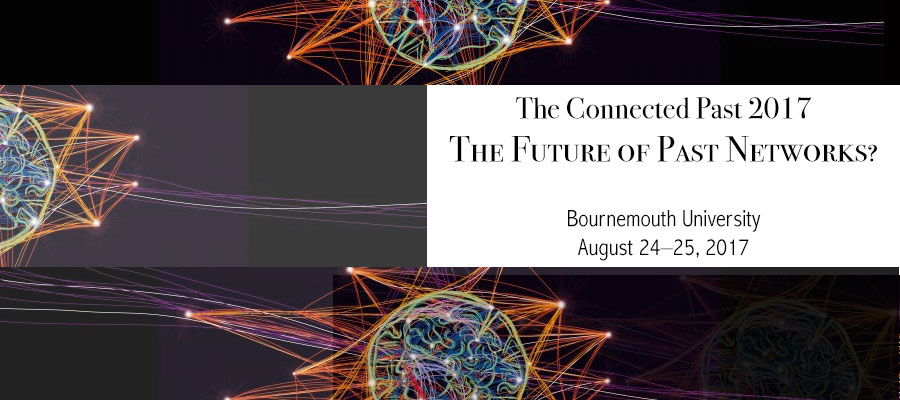The Connected Past 2017: The Future of Past Networks?, Bournemouth University, August 24–25, 2017
The Connected Past 2017 is a multi-disciplinary, international two-day conference that aims to provide a friendly and informal platform for exploring the use of network research in the study of the human past. It will be preceded by a two-day practical workshop offering hands-on experience with a range of network science methods.
Five years have passed since the first Connected Past conference (Southampton 2012) brought together scholars working in archaeology, history, physics, mathematics and computer science to discuss how network methods, models and thinking might be used to enhance our understanding of the human past. Much has happened in these intervening years: applications of network analysis have expanded rapidly; a number of collected volumes dealing explicitly with network analysis of the past have been published (e.g. The Connected Past, OUP 2016; Special Issue of the Journal of Archaeological Method and Theory 2015; Network Analysis in Archaeology, OUP 2013); and several dedicated groups of scholars are thriving, including the Connected Past itself which hosted conferences in Paris and London, but also the Historical Network Research group, Res-Hist and others. The Connected Past 2017 will provide an opportunity to take stock of the developments of the past five years and to discuss the future of network research in archaeology and history. How will new network models, methods and thinking shape the ways we study the past?
We welcome submissions of abstracts that address the challenges posed by the use of or apply network approaches in historical/archaeological research contexts, welcoming case studies drawn from all periods and places. Topics might include, but are not limited to:
- Missing and incomplete data in archaeological and historical networks
- Networks, space and place
- Network change over time
- What kinds of data can archaeologists and historians use to reconstruct past networks and what kinds of issues ensue?
- Categories in the past vs categories in our analysis: etic or emic, pre-determined or emergent?
- Formal network analysis vs qualitative network approaches: pros, cons, potential, limitations
